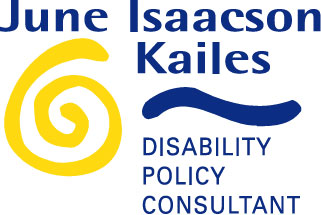Home
| Services
| Products | Hot
Resources


I am a resident. You reside.
I am admitted. You move in.
I am aggressive. You are assertive.
I have behavior problems. You are rude.
I am noncompliant. You don't like being told what to do.
When I ask you out for dinner, it is an outing. When you ask someone out, it is a date.
I made mistakes during my check-writing program. Some day I might get a bank account. You forgot to record some withdrawals from your account. The bank called to remind you.
I wanted to talk with the nice-looking person behind us at the grocery store. I was told that it is inappropriate to talk to strangers. You met your spouse in the produce department. Neither of you could find the bean sprouts.
I celebrated my birthday yesterday with five other residents and two staff members. I hope my family sends a card. Your family threw you a surprise party. Your brother couldn't make it from out of state. It sounded wonderful!
My case manager sends a report every month to my guardian. It says everything I did wrong and some things I did right. You are still mad at your sister for calling your Mom after you got that speeding ticket.
I am learning household skills. You hate housework.
I am learning leisure skills. Your shirt says you are a "Couch Potato."
After I do my budget program tonight, I might get to go to McDonald's if I have enough money. You were glad that the new French restaurant took your charge card.
My case manager, psychologist, R. N., occupational and physical therapist, nutritionist and house staff set goals for me for the next year. You haven't decided what you want out of life.
Someday I will be discharged . . . maybe. You will move onward and upward.
Reprinted by permission of the
Advocate;
a publication of ARC of Massachusetts.
by John R. Woodward, M.S.W.
Center for Independent Living of North Florida, Inc.
"Special education," "special needs," and the
"Special
Olympics" -- isn't it about time we got rid of them?
If we can
dispense with the word "handicapped" then it's past
time to stop
being "special."
"Special" implies differentness and apartness.
"Special"
is
the label on segregated programs: "special
education"
and "Special
Olympics." "Special" is a euphemism, a word
introduced
by do-
gooders to sugar-coat their control of our lives.
After all,
disabled citizens have "special needs" not "special
rights."
"Special" is a dangerous one to let go by,
because
it has an
aura that attracts the media. Everybody loves the
"special kids"
because, gosh darn it, they're so loveable up there
on that poster.
A hundred major corporations support the "Special
Olympics,"
"Special Scouting" and "Very Special Arts." No
right-thinking
person would dare criticize a "Special"
organization.
Maybe ADAPT
needs to change its name to "Very Special Activists."
A "television special" is an unusual treat. A
"Special
Agent
of the FBI" has extra powers. The "daily special"
is an extra
value. A "special guest star" is someone considered
attractive and
important. Do these qualities describe your life?
"Special" infantilizes and trivializes the
identity
of a
disabled person. If you are disabled, you are not
"special"; you
are disadvantaged and oppressed.
When it is used to refer to disabled people,
"special"
isn't
at all descriptive. If you didn't know "special
education" means
teaching kids with disabilities, you couldn't figure
it out.
Recently, some folks with developmentally
disabilities
in
started a Jaycees chapter here in Tallahassee. They
didn't call it
the "Special Jaycees." They called it the "Action
Jaycees of
Tallahassee." Now they're a nationally-accredited
Jaycee chapter,
with all the rights and responsibilities that go
with
accreditation. They didn't need "special" because
they didn't have
a lot of do-gooders running things for them.
Can you imagine a day when the sponsors will let
the "special
kids" run the "Special Olympics"? What would they
call it -- "The
Empowerment Games"?
We need to become as militant about "special" as
we are about
"handicapped" and the Jerry Lewis Telethon. Let
reporters and
managers of charitable organizations know that we
feel "special" is
inappropriate. If you confront them often enough,
they'll get the
message.
We need to deny that there's anything "special"
about
being
disabled, so we can stop getting "special treatment"
instead of
justice.
Reprinted with Permission from The Disability
Rag,
11/91
This document may be distributed freely in
electronic
format.